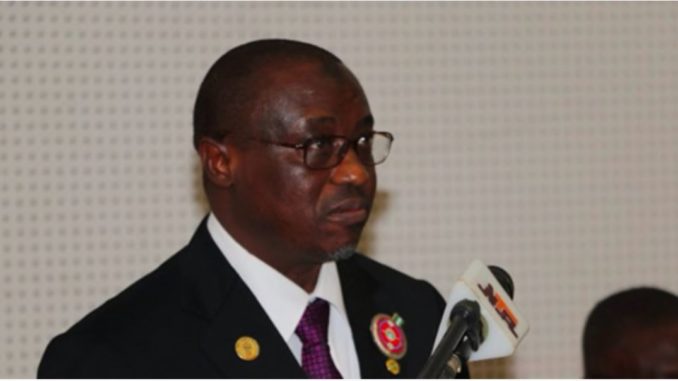
The cat has finally been let out of the bag! The bombshell by Maikanti Baru, Group Managing Director of the Nigerian National Petroleum Corporation, that no turnaround maintenance has been undertaken on the four state-owned refineries in 42 years raises salient questions, including the rationale for retaining their ownership. Nigerians should demand explanations on the monies claimed for TAM over the years.
The NNPC boss was unambiguous. In his year-end message to staff cited by the NNPC’s Public Affairs Division, he said the three refineries (Port Harcourt’s two are sometimes grouped together) had not undergone Turnaround Maintenance “for an aggregate of 42 years combined.” Taken at face value, it reveals not only irrational business practices, but also suggests that Nigerians have been fed lies and deception over the years by government and the NNPC officials. It also confirms lingering accusations that monies allotted over the past four decades for TAM and other repairs were likely wasted and embezzled.
Despite his admission of remiss by his predecessors, Baru is sustaining the deception. This is evident in his boast that “despite the challenge,” major rehabilitation was ongoing in all the refineries, among them, upgrading the Distribution Control System in Warri; major repairs at Kaduna’s Catalytic Reforming Unit and on the Fluid Catalytic Cracking Unit, as well as the power plant in Port Harcourt’s twin refineries. We have heard this before; indeed, every GMD on resumption reels out major TAM and repair projects with miserable results that nonetheless costs the taxpayer dearly.
The bitter truth is that the refineries are basket cases, conduits for fraud and fleecing of the treasury. They are not run on any sound business model and their managers have lost the capacity, if ever they had it, to run them profitably. Experts say TAM should be undertaken every three-five years to achieve optimal productivity and preserve machinery. A loss of N10.9 billion by the refineries in August 2018 was modest going by their persistent huge operating deficits for over three decades. In 2015, the refineries dropped N82.09 billion loss; N78.95 billion in 2016, and much more in 2017. Worse: capacity utilisation has been dismal. Combined utilisation in August 2018 was 3.02 per cent, down from 4.83 per cent in the preceding month. For the year 2017, combined average capacity utilisation was 8.17 per cent, according to the Department of Petroleum Resources. The NNPC’s monthly reports often record zero capacity utilisation at Warri and Kaduna. Ibe Kachikwu, the Minister of State for Petroleum Resources, who until recently doubled as the NNPC’s GMD, admitted in a newspaper interview that operating at low capacity guaranteed losses.
This bizarre template of running Nigeria has to end. While the NNPC wastes resources on decrepit refineries, Baru preened that it also imported 15.87 million metric tonnes of petrol in 2018, 62 per cent higher than the 9.8 million MT it imported in 2017. Kachikwu revealed in June 2017 that Nigeria spent $28 billion of her foreign exchange earnings importing 92 per cent of the petrol it consumed annually. In the nine months to September 2018, N2.58 trillion was spent on this, said the National Bureau of Statistics, while N1.14 trillion is estimated to be spent by the government subsidising petrol imports in 2019.
Baru’s revelation confirms that claims of TAM over the years were fraudulent. The Economic and Financial Crimes Commission and other anti-graft bodies should investigate all the transactions involving TAM and other repairs at the refineries. In 2012, the government said it voted $1.6 billion for TAM. It once awarded contracts to Chrome Petroleum and Total for TAM. Voting down a request to borrow $1.8 billion for TAM in 2017, the House of Representatives claimed this had gulped N264 billion in a decade. A request for the NNPC to provide its figures for TAM was met with a stonewall and the corporation, described as the world’s most opaque state-owned oil company, has not published precise figures of its spending on TAM and other repairs despite requests by the parliament.
Unlike Baru, Kachikwu has confessed that the refineries are in a bad shape and that for government to raise the $2 billion needed for their refurbishment is bad economics. Yet, Baru is repeating the discredited, futile idea of bringing in the original builders of the refineries to rehabilitate them when the Japanese and Italian firms have emphatically declined the deal. There is no viable alternative to privatisation: the refusal of President Muhammadu Buhari to heed the sensible consensus of selling the refineries as they are is driving the economy to the ruin.
The National Assembly that should insist on full implementation of the privatisation laws is desperate to halt any concession of Ajaokuta Steel and fails to appreciate that N3.7 trillion drained each year by petrol imports and subsidy destroys production and jobs. To change its corporate culture, ADNOC, Abu Dhabi’s state-owned downstream operator, did an IPO in 2017, while the sale of refineries in former communist countries of Eastern Europe freed them for efficiency and profitability.
It is time to save Nigeria from the power blocs that have captured national resources using the NNPC and the refineries as gigantic fraud vehicles. The National Assembly should open probes into all refinery expenditures since 1999, past and current ministers and GMDs of the NNPC, unravel the cost of repairs and recover all misused funds and prosecute those who betrayed public trust.
Buhari, like his predecessors, will attract ignominy for the continued bleeding of the economy through the refineries. He can make a difference by privatising them without further delay.
END

Be the first to comment